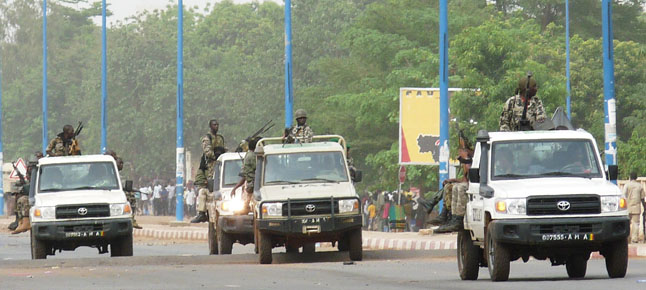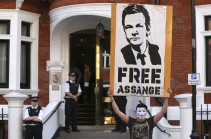
Drones have put targeted killing on trial
The past few weeks have seen a flurry of activity aimed at achieving greater transparency and accountability with respect to the U.S. government’s practice of “targeted killing” (primarily through the use of drones).
To begin, the UN special rapporteur on counter-terrorism and human rights, Ben Emmerson, announced in late January the launch of an investigation into the “civilian impact” and “human rights implications” of drone attacks and other targeted killings by the U.S. and other states. The rapporteur claimed that such attacks pose a serious challenge to the existing framework of international law, and therefore require the development of new legal mechanisms to regulate use and ensure accountability. He also warned that if states engaged in drone attacks do not establish effective, independent, and impartial investigations of their actions, it might be necessary for the United Nations to do so. (Note: The UN investigation will examine 25 different cases of drone attacks, not all directed by the U.S. However, it remains the case that U.S. policy is a main focus of attention, particularly for China, Russia, and Pakistan, the three states that called for the investigation within the Human Rights Council).

Clock is Ticking: Canada must show Arctic leadership
In 2013, the Canadian government’s attention will once again be focused on the Arctic. One immediate priority is the upcoming decision by members of Stephen Harper’s cabinet on how to conduct an environmental review for aproposal to develop the Izok Corridor in Nunavut.
The plan – put forward by a company headquartered in Australia, but which is a subsidiary of Chinese state-owned resource giant China Minmetals – could bring billions of dollars into the region through its production of an estimated 180,000 tonnes of zinc and 50,000 tonnes of copper a year.
Such production, however, is also slated to bring the development of substantial new infrastructure, including open-pit mines, roads, bridges, air-strips and ports, as well as a processing plant.

When Regional Solutions Fail: The French see good reasons for intervening in Mali, but their decision is a risky one
The announcement by French President Francois Hollande that his country is engaged in a military intervention in Mali represents a significant shift in strategy for the former colonial power in Africa. Up until a couple days ago, France was very much the reluctant intervener, investing all of its energy in coordinating a multilateral intervention (led by the Economic Community of West African States, ECOWAS) to forestall the further advance of Islamist forces in the Sahel region, and in reassuring worried African states, such as Algeria, that France’s days as an ‘African policeman’ were long gone.

UK loses a set in its match with Assange
In an Op Ed in last weekend’s Ottawa Citizen, I commented on the Catch 22 situation the UK government now finds itself in with respect to Julian Assange. Earlier this week, the Foreign Minister of Ecuador, Ricardo Patino, announced his government’s decision to provide ‘diplomatic asylum’ to the founder of the Wikileaks website, who took up residence in the embassy in mid June to avoid extradition to Sweden to face questioning related to alleged sexual offences. In one sense, nothing has changed. British Foreign Secretary William Hague maintained yesterday that despite the decision of officials in Quito (the Ecuadorean capitol) to grant asylum, the UK will not allow Mr. Assange safe passage to Ecuador. He also rightly pointed out that the …
UN Secretary-General HE Mr Ban Ki-moon at Oxford University
His Excellency Mr Ban Ki-moon, current Secretary-General of the United Nations, gave this year’s Cyril Foster Lecture on ‘Human Protection and the 21st Century United Nations’ on 2 February at Oxford’s Examination Schools, hosted by the Department of Politics and International Relations. HE Mr Ban Ki-moon was the 4th Secretary-General of the UN to give a Cyril Foster lecture and he was greeted by an audience of over 700 attendees, including the overflow rooms. From the very early days of his tenure as Secretary General, Ban Ki-moon has placed humanitarian issues, and particularly the notion of the ‘responsibility to protect’, at the forefront of his agenda. More specifically, he has sought to turn ‘words into deeds’ – to translate the …










